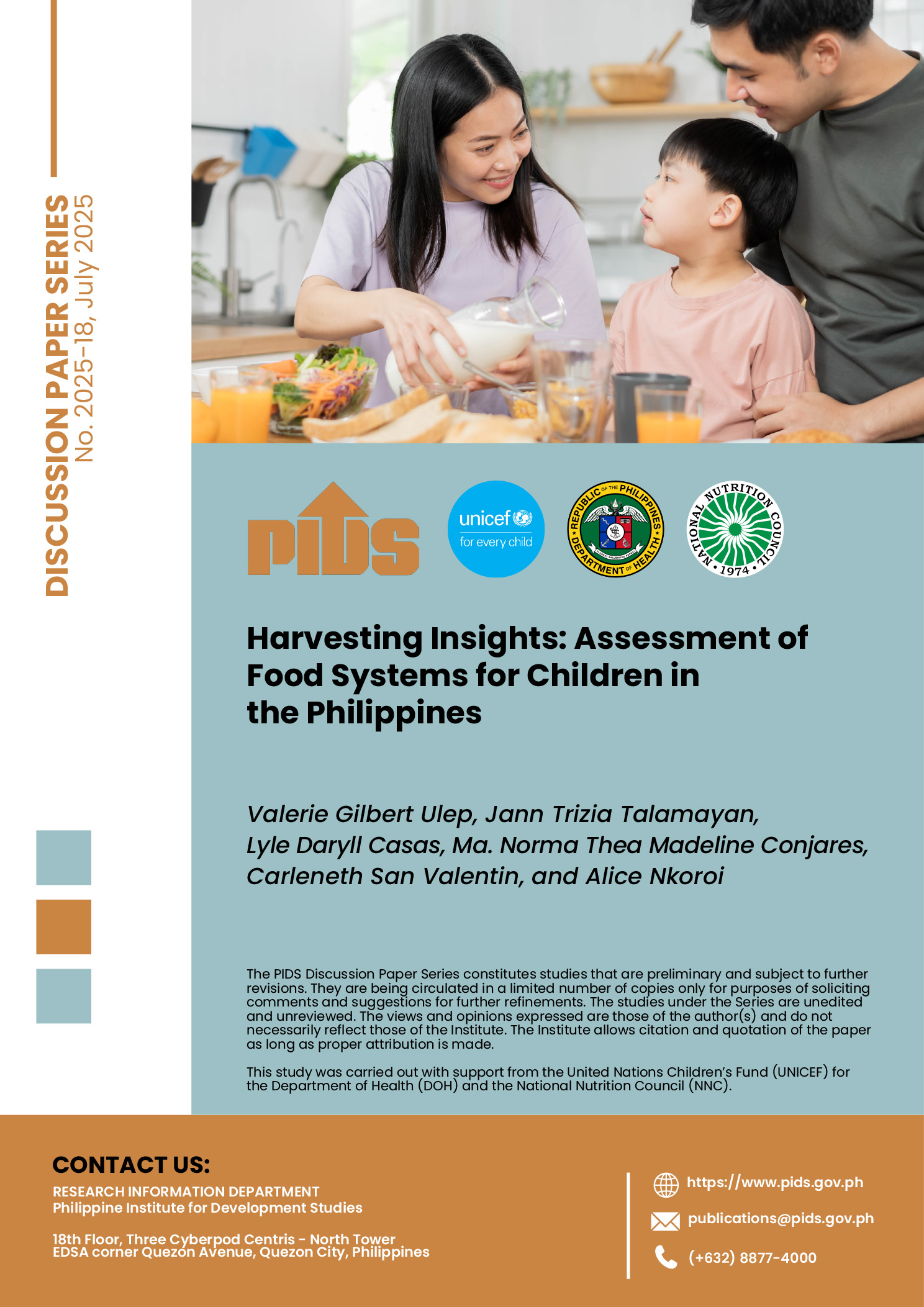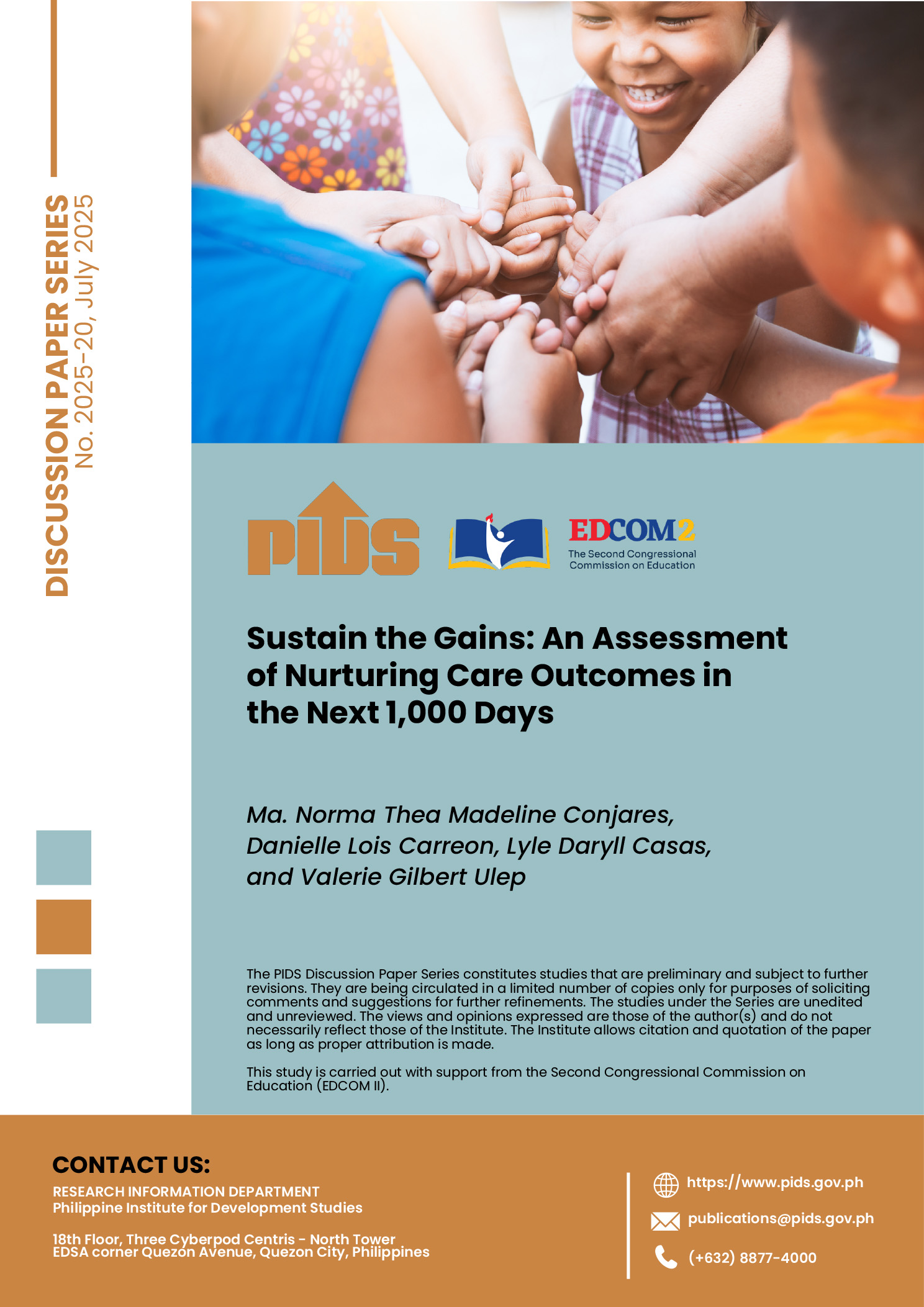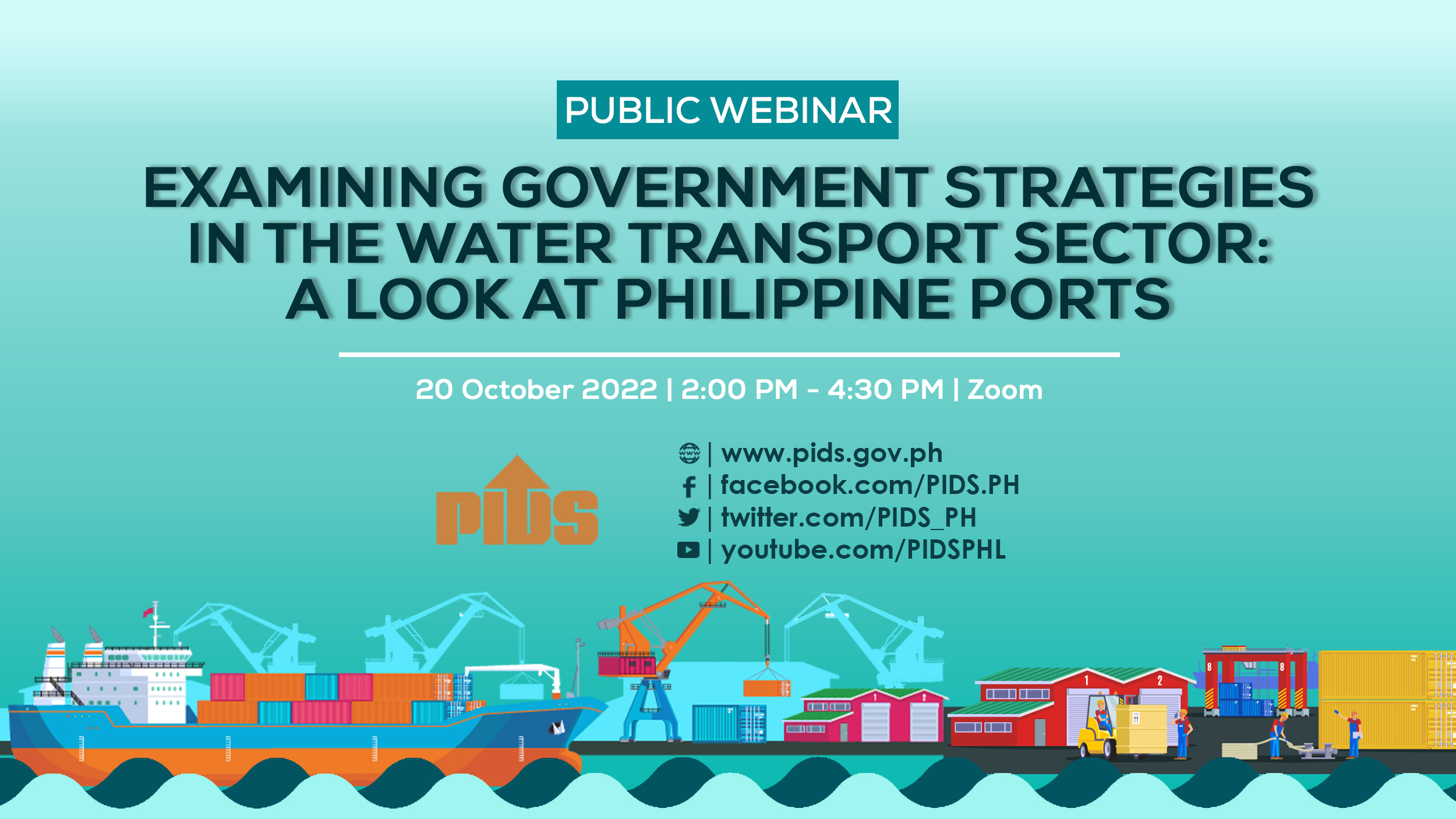Over the years, the Philippines has made progress in improving water, sanitation, and hygiene (WASH) services. Despite this progress and sustained economic growth, waterborne diseases remain a leading cause of morbidity and hospitalization, particularly among the poorer segments of the population. Furthermore, much still needs to be done to achieve universal coverage of safely managed WASH services across all settings—schools, child development centers, health facilities, and households. These disparities contribute to a substantial disease burden that drives poor health and nutrition outcomes. Using various secondary data sources, this paper delves into the current state of WASH in the Philippines, including its link to nutrition. This paper explores the disease burden associated with WASH, the current conditions of WASH in the Philippines pertaining to both demand and supply factors, and the governance challenges hindering the achievement of universal WASH coverage. Significant disparities in access to WASH persist, particularly among the poorest households in the most disadvantaged areas. The last mile challenge in WASH is particularly evident in the poorest regions, where even basic water and sanitation services are lacking. This highlights the need to improve services for vulnerable populations. Bridging these gaps through streamlined governance, efficient resource allocation, and targeted local interventions in underserved areas is vital to achieving universal and equitable access to safe water and sanitation.
Comments on this paper are welcome within 60 days from the date of posting. Email publications@pids.gov.ph.
Citations
This publication has been cited 3 times
- DailyGuardian. 2025. Persistent Gaps in Clean Water Access Fuel Health Challenges in the PHL Despite Progress – PIDS Study. DailyGuardian.
- Valente, Catherine. 2025. Diarrhea leading cause of illness, hospitalization in PH – study. Manila Times.
- Villamente, Jing. 2025. Pinoys grapple with persistent diarrhea. Daily Guardian.













